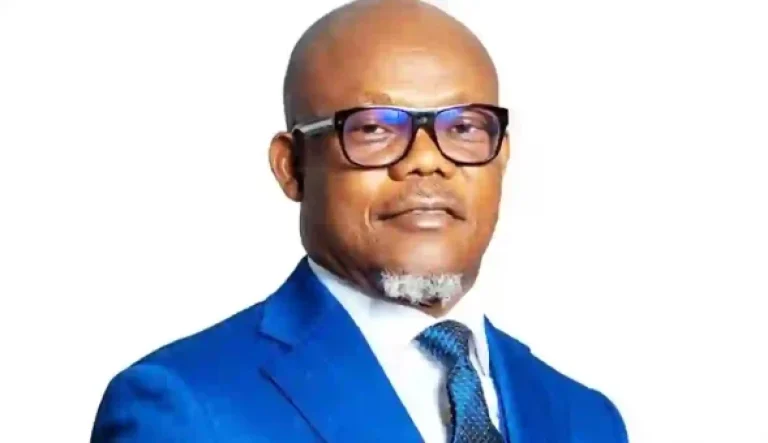With over 90 million persons still without electricity, the Minister of State, Power, Mr. Goddy Jedy-Agba, has said that Nigeria remains the most deficient country in the world in terms of access to basic energy needs.
Speaking at the 2021 edition of the Nigeria Energy Forum (NEF), led by Daniel Adeuyi, the minister noted that gas would play a major role in the country’s quest for efficient power supply, stating that this year was a critical year for the energy and climate agenda.
According to him, Nigeria’s huge figures in energy poverty remained a major challenge that must be resolved, advising that the global climate change agenda must be sped up to meet targets set forth in the Paris Agreement.
“About 2.6 billion people still lack access to clean cooking solutions. Unfortunately, Nigeria has the highest electricity deficiency globally with 90 million people ‘unelectrified’, while 175 million people lack access to clean cooking solutions.
“These are huge figures that must be addressed, because energy access underpins economic development, and enables other human capital, capital potential, such as access to adequate healthcare services, quality education, and economic productivity,” Jedy-Agba stressed.
He added that the energy sector will be a critical sector of focus for climate negotiations as energy production and consumption, including electricity, heating, and transport account for 70 per cent of global greenhouse gases emissions. “As we engage in these negotiations in the run up to COP26, and beyond, it is critical that we will work towards aligning our energy transition outcome, which is equitable, inclusive, and just.
“This means, accounting for adverse realities and accommodating various pathways to meet net zero by 2050. In the case of Nigeria, a just and equitable transition will be one that addresses energy access challenges and looks to enable universal residential and industrial assets to gain sustainable energy,” he said.
According to him, a just transition in Nigeria will feature the use of both clean energy technologies and natural gas as it aims to achieve universal access to energy by 2030 and net zero emissions by 2050.
“Figures show that this will require investment of over $400 billion in excess of business-as-usual spending between now and 2050, highlighting the scale of effort required,” he pointed out.
In his remarks, while speaking on ‘Financing Africa’s Rapid Energy Transition to Net Zero’, Director, Energy Financial Solutions, Policy and Regulation, African Development Bank (AfDB), Wale Shonibare, explained that there was the need for accelerated efforts to power the continent.
He stated that more than two thirds of the world’s population that is without access to electricity live in Africa, increasing by two per cent in 2020 due to the impact of the COVID-19 pandemic on the implementation of electrification projects.
“Africa’s expected demographic trend will worsen this situation as 57 per cent of the expected increase in the global population between today and 2040 will be in Africa.
“The five countries with the largest access deficit – representing 50 per cent of Africa’s deficit – are: Nigeria, the Democratic Republic of Congo, Ethiopia, Tanzania and Uganda,” Shonibare stressed.
He maintained that the continent’s ambition to reach universal access by 2030 requires a fivefold increase in power sector investment, mostly in low-carbon generation and grid networks, adding that there was an urgent need for Africa to expand its energy infrastructure to serve its growing population.
He pointed out that despite being home to 17 per cent of the world’s population, Africa only accounts for four per cent of global power supply investment which makes it rank amongst the lowest in the world.
“Achieving universal access by 2030 requires a significant ramp up in spending to over $100 billion per year, with $51 billion for transmission and distribution lines, $34 billion for grid-generation and $17 billion for off-grid systems.
Adeuyi, in his comments, said the global challenge in 2021 was how to recover better from the economic impact of COVID-19, adding that sustainable industrial revolution built on modern energy solutions can accelerate the recovery at pace.
“This is why the NEF2021 focus is on key initiatives pertinent to mobilising energy investments for climate development, adaption, mitigation and finance, hence facilitating better recovery post COVID-19,” Adeuyi said.
•Source: THISDAY: (Text, excluding headline)








cialis 5mg online
Tadapox Tadalafil Dapoxetine
https://buytadalafshop.com/ – can you buy cialis online
furosemide weight loss
https://buylasixshop.com/ – Lasix
Comprare Viagra Generico Line
Neurontine
https://buyneurontine.com/ – what is gabapentin for
Fedex Shipping Stendra Find Mastercard Basildon
https://bit.ly/films-dyuna-2021-goda-smotret-onlaine
Viagra
kamagra generic viagra soft 100
Viagra
Buy Stromectol From India
What Is Keflex Prescibed To Treat cialis
plaquenil weight loss reviews Rhineinc.In Yvqxqv
720874 53192I see which you are employing WordPress on your blog, wordpress will be the best. :~- 849185